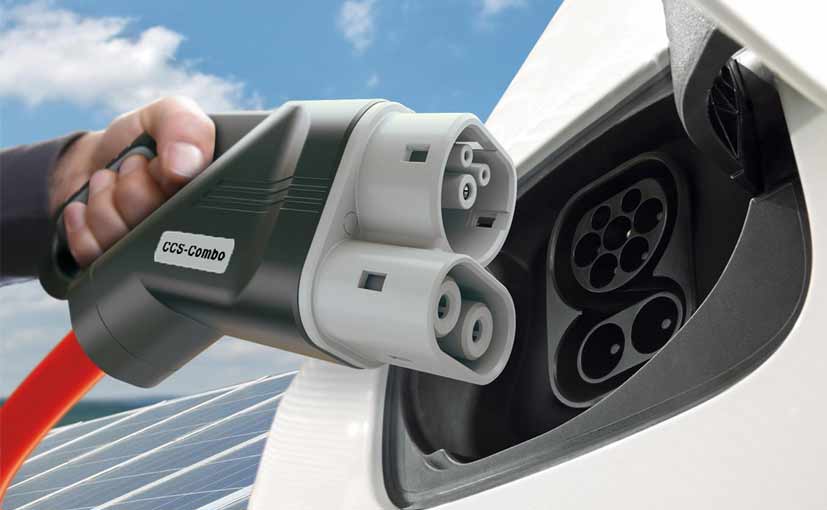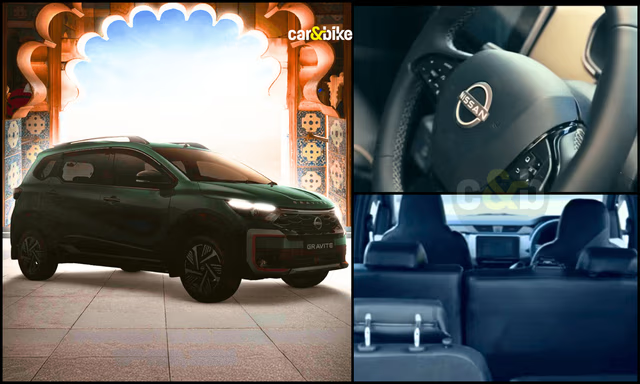India To Produce Indigenous Lithium-Ion Batteries

The government-run Central Electro Chemical Research Institute (CECRI) and RAASI Solar Power Pvt Ltd have signed an agreement on first transfer of technology for lithium-ion batteries. According to the Science and Technology Ministry, this memorandum of understanding is the first of its kind for the country. India sources lithium-ion batteries from China, Japan and South Korea among some other countries. India is one of the largest importers, and in 2017 it imported nearly $150 million worth lithium-ion batteries.
Also Read: Sun Mobility Launches Smart Battery Swap System For Electric Two And Three-Wheelers
The indigenous technology of lithium-ion cells has been developed by a group of scientists at the Council for Scientific Industrial Research (CSIR)'s CECRI in Tamil Nadu's Karaikudi in partnership with CSIR-National Physical Laboratory, CSIR-Central Glass and Ceramic Research Institute, Kolkata and CSIR-Indian Institute of Chemical Technology, Hyderabad.
"Today's development is a validation of the capabilities of CSIR and its laboratories to meet technology in critical areas to support our industry, besides other sectors," said Science and Technology Minister Harsh Vardhan.
Also Read: Mahindra and LG Chem Collaborate For Lithium-Ion Battery Technology
"It will give tremendous boost to two flagship programmes - generating 175 giga watts (GW) by 2022, of which 100 GW will be solar and the second, the National Electric Mobility Mission, to switch completely to electric vehicles by 2030," he added.
Under the MoU, the Raasi Group will set up a manufacturing facility in Tamil Nadu's Krishnagiri district, which is located close to Bengaluru.
C. Narsimhan, Chairman, Raasi Group said, "We want to bring down the cost of cell manufacturing below Rs 15,000 per KW to replace lead acid battery."
Also Read: General Motors Partners With Honda To Develop Next Gen Electric Battery
"We also have plans to make lithium-ion battery for solar roof top with life span of 25 years to make it affordable enough to drive the photo voltaic segment," he added.
Lithium-ion batteries have applications in energy storage systems and can power any electrical application without the need of physical wires.
Latest News
 Jafar Rizvi | Feb 7, 2026Nissan Gravite Interior Spotted Ahead Of February 17 DebutThe Gravite’s interior appears to carry over the familiar layout from the pre-facelift Renault Triber, with only minor updates expected.2 mins read
Jafar Rizvi | Feb 7, 2026Nissan Gravite Interior Spotted Ahead Of February 17 DebutThe Gravite’s interior appears to carry over the familiar layout from the pre-facelift Renault Triber, with only minor updates expected.2 mins read car&bike Team | Feb 7, 2026Jawa 730 Twin UnveiledJawa Moto has introduced the 730 Twin, the fourth model in its lineup to be based on the 750 platform.2 mins read
car&bike Team | Feb 7, 2026Jawa 730 Twin UnveiledJawa Moto has introduced the 730 Twin, the fourth model in its lineup to be based on the 750 platform.2 mins read car&bike Team | Feb 6, 2026Indian Motorcycle Parts Ways With PolarisAs America’s first motorcycle brand prepares to celebrate its 125th anniversary, Indian Motorcycle has parted ways with former parent Polaris to become an independent company.1 min read
car&bike Team | Feb 6, 2026Indian Motorcycle Parts Ways With PolarisAs America’s first motorcycle brand prepares to celebrate its 125th anniversary, Indian Motorcycle has parted ways with former parent Polaris to become an independent company.1 min read car&bike Team | Feb 6, 2026BMW F 450 GS Based Sportbike Spotted On TestThe upcoming supersport machine is expected share the same parallel-twin engine with the upcoming BMW F 450 GS.1 min read
car&bike Team | Feb 6, 2026BMW F 450 GS Based Sportbike Spotted On TestThe upcoming supersport machine is expected share the same parallel-twin engine with the upcoming BMW F 450 GS.1 min read car&bike Team | Feb 6, 2026Tata Sierra Bookings Cross 1 Lakh Mark; Production Ramped UpWith bookings now in six-digit territory, Tata Motors is moving ahead with a phased ramp-up in production, while working through supplier-related constraints.1 min read
car&bike Team | Feb 6, 2026Tata Sierra Bookings Cross 1 Lakh Mark; Production Ramped UpWith bookings now in six-digit territory, Tata Motors is moving ahead with a phased ramp-up in production, while working through supplier-related constraints.1 min read car&bike Team | Feb 6, 2026Mahindra To Set Up Its Biggest Automobile Plant In Nagpur; Production To Begin In 2028The new facility will support next-generation platforms from the brand and will be capable of manufacturing multiple powertrains including ICE, EV & future technologies1 min read
car&bike Team | Feb 6, 2026Mahindra To Set Up Its Biggest Automobile Plant In Nagpur; Production To Begin In 2028The new facility will support next-generation platforms from the brand and will be capable of manufacturing multiple powertrains including ICE, EV & future technologies1 min read
 Bilal Firfiray | Feb 4, 2026Volkswagen Tayron R-Line Review: Sensible Flagship For IndiaVolkswagen has introduced a made-in-India flagship SUV that offers space, comfort, performance, and German driving finesse in a practical three-row package. But is the Tayron R-Line good enough?6 mins read
Bilal Firfiray | Feb 4, 2026Volkswagen Tayron R-Line Review: Sensible Flagship For IndiaVolkswagen has introduced a made-in-India flagship SUV that offers space, comfort, performance, and German driving finesse in a practical three-row package. But is the Tayron R-Line good enough?6 mins read Preetam Bora | Feb 2, 2026TVS NTorq 150 Road Test Review: Bigger, Better & More Efficient!We test the new TVS NTorq 150 out in the real world to get a sense of what it offers in terms of performance, dynamics and fuel economy.7 mins read
Preetam Bora | Feb 2, 2026TVS NTorq 150 Road Test Review: Bigger, Better & More Efficient!We test the new TVS NTorq 150 out in the real world to get a sense of what it offers in terms of performance, dynamics and fuel economy.7 mins read Bilal Firfiray | Jan 21, 2026Tata Punch Facelift Review: New Turbo Engine; Same Old SoulWith the update, the Tata Punch facelift retains its character of being a healthy runabout, which is perfect for Indian roads. But have these changes made it any better?7 mins read
Bilal Firfiray | Jan 21, 2026Tata Punch Facelift Review: New Turbo Engine; Same Old SoulWith the update, the Tata Punch facelift retains its character of being a healthy runabout, which is perfect for Indian roads. But have these changes made it any better?7 mins read Amaan Ahmed | Jan 17, 2026Bajaj Chetak C25 First Ride Review: Basic, Likeable E-Scooter For First-Time RidersThe Chetak C25, in quite a few ways, is poles apart from the larger and more powerful 30 and 35 Series models, but in its mannerisms, it is very much a Chetak.8 mins read
Amaan Ahmed | Jan 17, 2026Bajaj Chetak C25 First Ride Review: Basic, Likeable E-Scooter For First-Time RidersThe Chetak C25, in quite a few ways, is poles apart from the larger and more powerful 30 and 35 Series models, but in its mannerisms, it is very much a Chetak.8 mins read Bilal Firfiray | Jan 9, 2026Toyota Urban Cruiser Hyryder: 10,000 km Long-Term ReviewAfter spending over three months and 10,000 km with the Toyota Urban Cruiser Hyryder Hybrid, we were impressed by its real-world mileage, seamless hybrid, practical comfort, and Toyota reliability. Is it the best C-SUV then?5 mins read
Bilal Firfiray | Jan 9, 2026Toyota Urban Cruiser Hyryder: 10,000 km Long-Term ReviewAfter spending over three months and 10,000 km with the Toyota Urban Cruiser Hyryder Hybrid, we were impressed by its real-world mileage, seamless hybrid, practical comfort, and Toyota reliability. Is it the best C-SUV then?5 mins read



























































































































